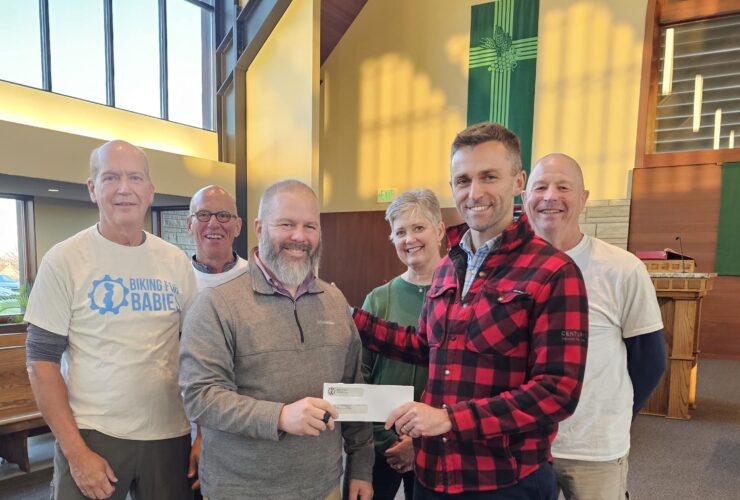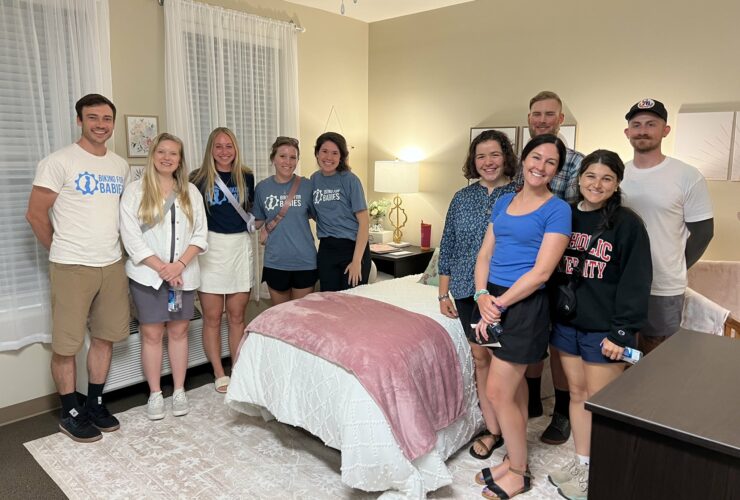![13ReasonsWhy [www.imagesplitter.net]](http://www.bikingforbabies.com/wp-content/uploads/2017/05/13ReasonsWhy-www.imagesplitter.net_-300x175.jpeg) When a TV show meant to show “your actions towards others have lasting effects” causes people across the world to contemplate their own death, one can imagine something has been misconstrued in that plotline. 13 Reasons Why is a Netflix original show based off a NY Times bestseller detailing the 13 reasons for a high school girl’s suicide. The girl leaves behind 13 tapes, each one for a different person who contributed to her misery and untimely death. The show has been hit with a lot of controversy, from religious organizations, from teachers, from parents, but perhaps most notably from health professionals. Psychologists have been claiming that 13RW is filled with psychological “triggers” not meant for vulnerable teenagers, those who have been sexually assaulted, or those struggling with intense depression or suicidal tendencies. Producers claim the show is meant for “mature” audiences to help people understand that teen suicide is a real issue and that how we treat others is more than important.
When a TV show meant to show “your actions towards others have lasting effects” causes people across the world to contemplate their own death, one can imagine something has been misconstrued in that plotline. 13 Reasons Why is a Netflix original show based off a NY Times bestseller detailing the 13 reasons for a high school girl’s suicide. The girl leaves behind 13 tapes, each one for a different person who contributed to her misery and untimely death. The show has been hit with a lot of controversy, from religious organizations, from teachers, from parents, but perhaps most notably from health professionals. Psychologists have been claiming that 13RW is filled with psychological “triggers” not meant for vulnerable teenagers, those who have been sexually assaulted, or those struggling with intense depression or suicidal tendencies. Producers claim the show is meant for “mature” audiences to help people understand that teen suicide is a real issue and that how we treat others is more than important.
The show is extremely popular right now among teens and tweens who have heard the buzz and just want to be “in the know.” But our PR coordinator Ashley (and thousands of others across the nation) fear this show has missed the mark. [In fact, Ashley does not encourage others to watch the show due to its graphic and psychologically damaging nature.]
Ashley on the radio
Last week, Ashley called in to “The Doctor is In” on EWTN radio. Radio show host Dr. Ray is a child psychologist who often talks about issues within family life, and this topic is certainly relevant. Ashley’s intent was to educate Dr. Ray, who had not seen the show, about the underlying causes of the main character’s pain. She relayed that much of the angst was caused by mixed up messages of sexuality; that the character was led astray and fell into degrading act after degrading act (both self-inflicted and inflicted upon her by others).
 Ashley poignantly describes how our culture is full of messages that degrade human dignity, that focus on pleasure-seeking, and in fact, that lead many people to using others as objects. She and Dr. Ray discussed the fact that in our world, we don’t take responsibility for our actions. However, what could possibly be even more important is that we don’t reach out to the people around us when we see that they need help.
Ashley poignantly describes how our culture is full of messages that degrade human dignity, that focus on pleasure-seeking, and in fact, that lead many people to using others as objects. She and Dr. Ray discussed the fact that in our world, we don’t take responsibility for our actions. However, what could possibly be even more important is that we don’t reach out to the people around us when we see that they need help.
A reality of mixed messages of sexuality
Unfortunately, this is a product of a society which does not favor human dignity, modesty, or morality. Our culture is telling us year after year that it’s more important to “save yourself,” to strive for getting what you want, no matter how it affects others. As a youth minister, I see first-hand how kids–without even realizing it–make backhanded comments about their friends, but because they follow it up with “I’m kidding, I love you,” everything’s ok (…it’s not). I see them growing up with more selfish tendencies in small and large things–not wanting to help us stack chairs or not wanting to help on our regular service projects. It’s because that’s what they see in movies, in TV shows, in the relationships of adults around them. It’s not always overt, but it’s definitely there; they are unafraid to put someone down as long as it temporarily builds themself up.
This is a scary world.
When the real world gets…really real
Young women who find themselves in unexpected pregnancies live in this world. If you’ve never experienced this first-hand, let me lay this very real example out for you. If a woman suddenly finds herself pregnant for the first time, she is immediately going to go into self-preservation mode and ask herself, “how can I get myself out of this?” She knows her friends will judge her for sleeping around or getting herself into that situation. She knows her family will disown her or at least judge her for being a disappointment. She knows that Planned Parenthood has an easy way out for her because they can take care of the issue very quickly. And then she’ll be able to go on with her life without too many people knowing or remembering.
But just like feedback from the show, we know this is not a reality. The main character in the show was able to come back from the grave and explain in vivid detail her decision. We know there is no sort of resolution for families and friends who lose loved ones to suicide. And we also know that women who have abortions do not simply forget about it; time and time again women (more often than not) regret their lost motherhood, and many fathers regret their lost fatherhood.
Getting the right lighting, angle, and filter on our lives
But the premise remains–we live in a culture willing to take advantage of others. We live in a culture where we don’t reach out to others because we don’t want people to see past our Instagram-filtered lives into the pain and distress we all feel at different times.
People’s perceptions are not always reality. We know in our heads that everyone struggles, but it’s impossible to remember that when much of our world is filtered, Photoshopped, or perfectly pruned. We know that people might see actions one way even though they objectively are not what they have perceived them to be.
Pro-life: beyond the baby bump
I think this idea most relatable because this is something of which the pro-choice community accuses pro-lifers. Because we focus on saving the lives of the unborn and making sure babies are born and not killed, they say that we are “pro-birth,” not “pro-entire-life.” They say that pro-lifers do not care about the quality of life post-birth for that unborn child and that we are solely focused on increasing numbers of births. But in actuality, organizations across the country are trying to change that perception.
Did you know that more and more organizations are offering post-birth parenting classes, clothing closets, support groups, etc? Almost every one of the organizations we support offer some type of regular infant care for at least up to a year after the child is born. The organizations focus on empowering the family to take care of themselves, not just put bandaids on their needs. They are truly reaching out to the people in their community most in need. And we continue to call for holistic services for families, including family medical care at reduced costs and university housing for pregnant and young mothers.
Uniting ourselves to the Cross
At the end of her discussion with Dr. Ray, Ashley pointed out that you want the main character of 13 Reasons Why to be able to push through this particular trial in her life. You find yourself wanting to call out “if you can just make it through this, you’ll be ok.” This is true in all of our struggles. If we are able to reach out to others–and not just the first person we think of, especially if they are unable to help us–we can be supported through any of our trials.
But most importantly, if we reach out to Jesus, our brother, our King, our Savior–He will carry us through it all. Jesus knows pain and suffering. But we know the whole story: that after the Cross their is Redemption and fulfillment.
May God have mercy on us and on the whole world.

To listed to all of Ashley’s discussion with Dr. Ray, check out his podcast on iTunes and listen to the episode from May 3. Ashley is on the air right after the first commercial break (around 16:00).






